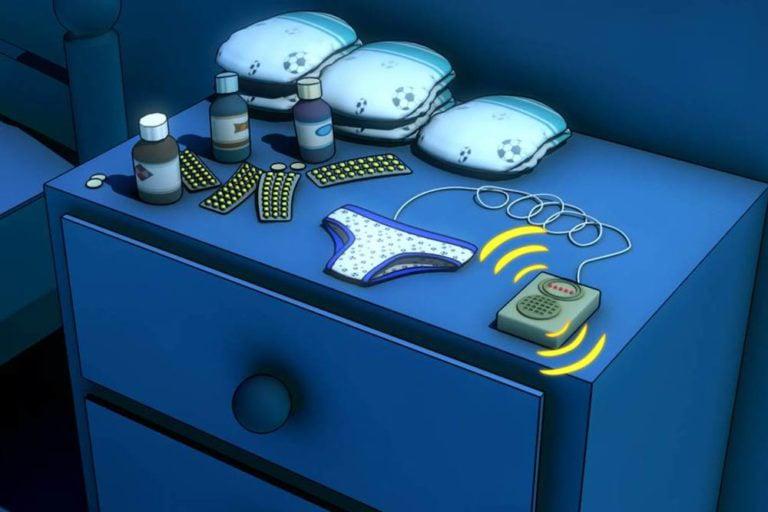Common Mistakes Parents Make

Waking up the Child at night
When you wake up the child at night to go to the toilet, you’re effectively taking the responsibility away from the child and transferring it to yourself. The child does not subconsciously learn to wake up themselves and consequently no progress is made. It is important that the child learns to wake themselves up unaided. The STOPEE alarm, when used with the THERApee software with its tailored reward system trains the child’s subconscious to take responsibility for waking up and going to the toilet themselves, without the intervention of a parent or guardian.
Punishment
Getting angry, making the child feel embarrassed or ashamed of their bedwetting, or simply punishing them for it is the wrong approach to dealing with the problem, and often does more harm than good. Whilst many parents may do this with good intentions, believing these actions may lead to modified behaviour, the reality is that these actions simply make the child feel bad, and suffer even more. It’s not their fault if they wet the bed, urination during sleep is an unconscious activity they simply lack control over. Any therapy solution for bedwetting should always work towards training subconscious behaviour through positive re-enforcement and not negative punishment, as it only aggravates the problem.
The THERApee software, included as part of the THERApee solution works on the principles of positive re-enforcement to empower the child to subconsciously modify their behaviour over time.
Overprotective parents
Parents themselves can often feel guilty that their child is suffering from a bedwetting problem. They often take responsibility for the problem on themselves, sometimes denying the child has a problem. They are either scared to admit the problem exists, or they are afraid of offending the child. There is a fine line between making sure the child is aware that the problem is their responsibility, whilst not making them feel offended or guilty because of it. Many parents fail to strike the right balance.
Ignoring the problem
Some parents simply ignore the problem, hoping it will just go away with time. This approach often leaves the child with a feeling of distress, that they cannot themselves act on, because they lack the support. In the worst case scenario, the child may grow up not realising they have a problem, and that bedwetting is normal. The child needs to acknowledge there is a problem for them to be able to deal with it.
Comparison between siblings
If a child has a younger sibling who does not suffer from bedwetting, and the parent, or guardian highlights this fact, by comparing the child to their sibling. Saying something like “ If your brother can do it, why can’t you?” this can cause further problems for the child. It will make them feel inadequate, or a failure. This can cause emotional problems for the child, on top of the original problem. An approach of sympathy and encouragement is often much better than belittling.
Using special bedwetting pants
Using bedwetting pants is fine for younger children, but as the child gets older, continued use may suppress their motivation to become dry. The incentive for them to overcome the problem is removed, because they see no negative consequences, such as waking up in a wet bed. Parents may actually perpetuate the problem, instead of encouraging the child to overcome it.





